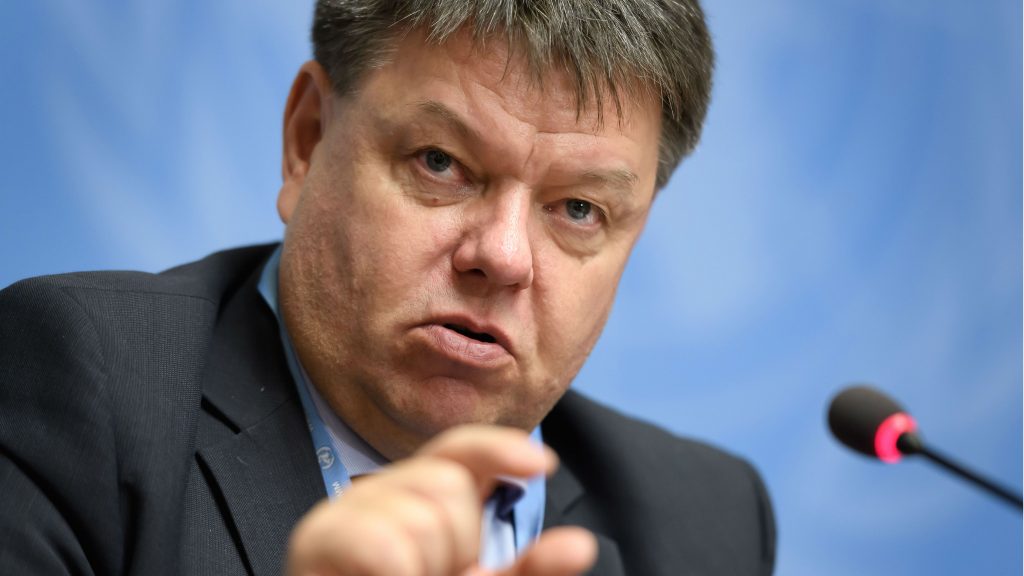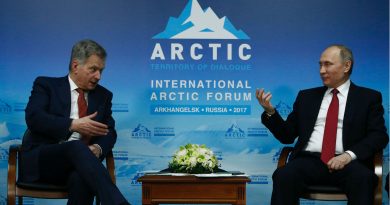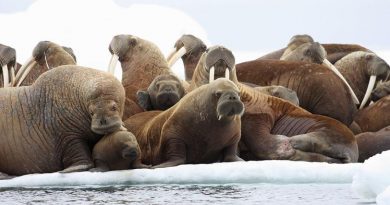2018 greenhouse gas concentrations broke records, warns WMO report

Greenhouse gases reached record highs in 2018 according a bulletin released on Monday by the World Meteorological Organization (WMO), continuing a trend that will have severe consequences for future generations the WMO said.
“This continuing long-term trend means that future generations will be confronted with increasingly severe impacts of climate change, including rising temperatures, more extreme weather, water stress, sea level rise and disruption to marine and land ecosystems,” the WMO said in a news release on Monday.
In all, the WMO bulletin reports that globally averaged concentrations of carbon dioxide (CO2) went from 405.5 parts per million in 2017 to 407.8 parts per million in 2018.
“We need to translate the commitments into action”
There are six main greenhouse gases: carbon dioxide, methane, nitrous oxide, hydrofluorocarbons, perfluorocarbons and sulphur hexafluoride.
Although the Arctic isn’t specifically mentioned in the bulletin, the Monday news release also flagged the increasing concentrations of methane and nitrous oxide over the past decade, observed by the WMO’s Global Atmosphere Watch (GAW) network, that among other regions of the world, has stations in the Arctic. The GAW programme was set up by the WMO to measure and collect data on the atmosphere.
“There is no sign of a slowdown, let alone a decline, in greenhouse gases concentration in the atmosphere despite all the commitments under the Paris Agreement on Climate Change,» said Petteri Taalas, the WMO’s secretary-general, referring to the international agreement reached in 2015 to keep global temperature increase to less than 2 degrees Celsius above pre-industrial levels.
“We need to translate the commitments into action and increase the level of ambition for the sake of the future welfare of the mankind,” he said.
- Carbon dioxide is the principal long-lived greenhouse gas related to human activities. (‘Long-lived’ refers to pollutants that remain in the atmosphere over long periods.)
- Methane is the second main long-lived greenhouse gas, 40 per cent is produced by natural sources like wetlands and termites, 60 per cent comes from human activities like cattle breeding, rice agriculture, fossil fuel exploitation, landfills and biomass burning.
- About 60 per cent of nitrous oxide emissions come from natural sources and about 40 per cent are from human activity.
Source: WMO Greenhouse Gas Bulletin (GHG Bulletin) – No. 15: The State of Greenhouse Gases in the Atmosphere Based on Global Observations through 2018
“The findings of WMO’s Greenhouse Gas Bulletin and UNEP’s Emissions Gap Report point us in a clear direction – in this critical period, the world must deliver concrete, stepped-up action on emissions,” said Inger Andersen, executive director of the UN Environment Programme (UNEP), in the news release.
“We face a stark choice: set in motion the radical transformations we need now, or face the consequences of a planet radically altered by climate change.”
The WMO Greenhouse Gas Bulletin has been released annually since 2006.
To read the 2019 WMO Greenhouse Gas Bulletin, click here.
Write to Eilís Quinn at eilis.quinn(at)cbc.ca
Related stories from around the North:
Canada: We’ll see an ‘ice-free’ Arctic this century, says latest research, CBC News
Finland: Warmer, drier summer than usual in most of Finland, Yle News
Greenland: Greenlanders stay chill as the world reacts to their heatwave, CBC News
Iceland: Former U.S. Secretary of State John Kerry calls for climate action at Arctic Circle assembly, The Independent Barents Observer
Russia: Warm winter expected across the Arctic, The Independent Barents Observer
Sweden: IPCC climate report warns “extreme sea level events” will occur frequently, Radio Sweden
United States: The Arctic shipping route no one is talking about, Cryopolitics Blog



